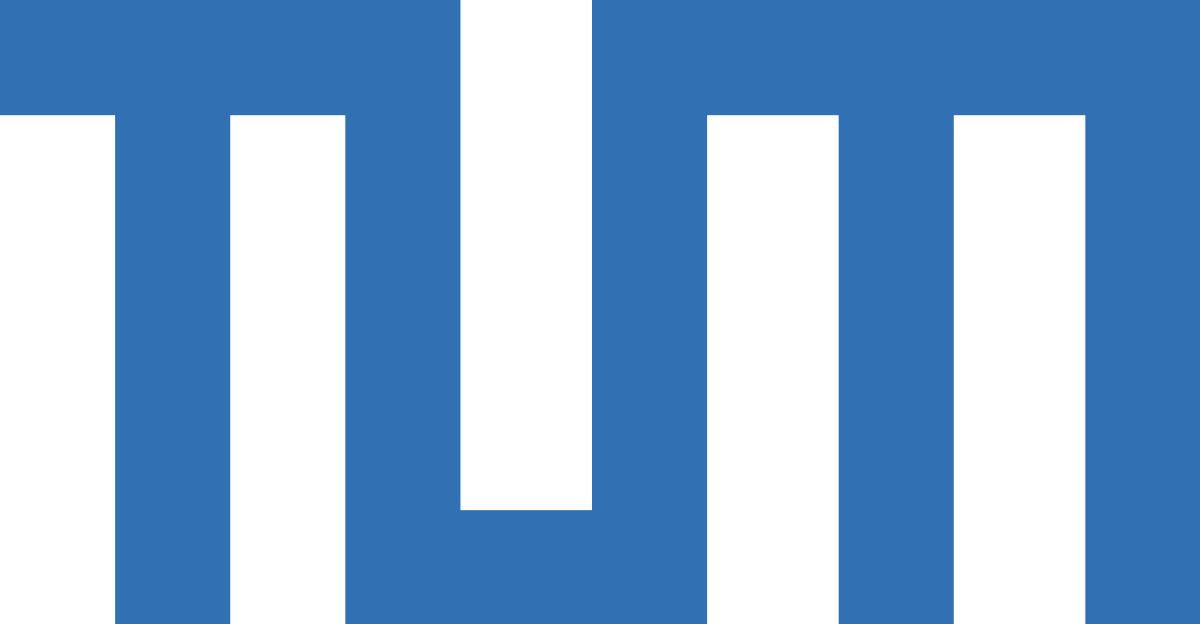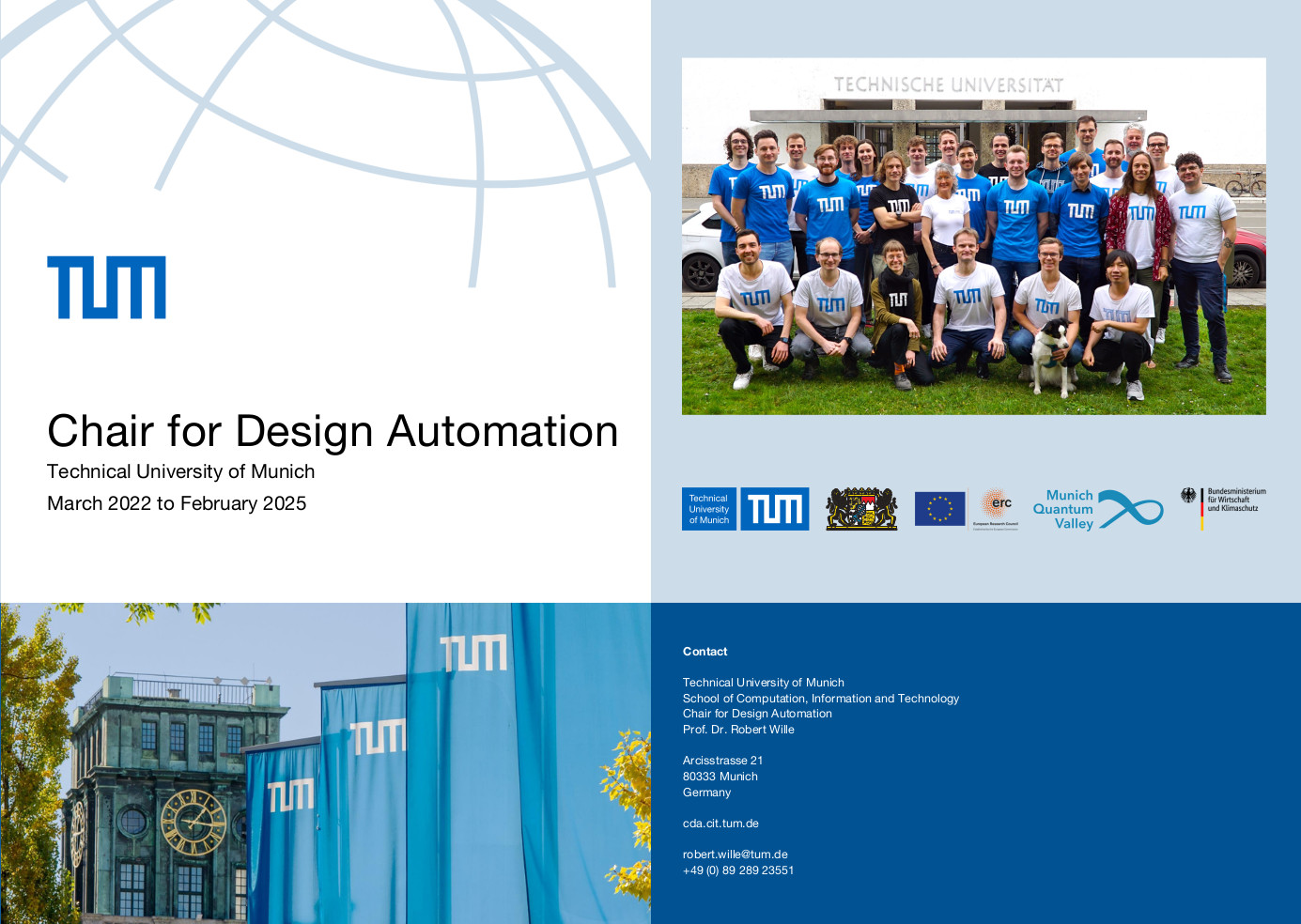
Call for Applications: Scientific Programmer in Quantum Computing (m/f/d, full time)
Are you enthusiastic about software engineering and interested in cutting-edge research in quantum computing? Do you have a strong background in programming and a passion for open-source development? If so, we invite you to apply for the position of Scientific Programmer at the Chair for Design Automation at the Technical University of Munich, one of Europe’s leading technical universities.
Our research
The Chair for Design Automation focuses on developing design methods for various computing technologies, with a strong emphasis on quantum computing. Our solutions encompass the entire software stack for quantum computing, acting as an interface between end-users and hardware providers. All solutions are available as open-source projects under the Munich Quantum Toolkit (MQT; https://mqt.readthedocs.io).
We are proud members of the Munich Quantum Valley initiative and participate in several national and international projects. We collaborate with industry and academia to advance quantum computing and organize events to promote the technology and build a strong community around it. More information about our group is available at https://www.cda.cit.tum.de.
Your profile
As a Scientific Programmer, you will develop and maintain software tools and frameworks to support research in design automation and quantum computing. You will collaborate closely with researchers to optimize software solutions and transition proof-of-concept solutions to production-ready tools. In particular, you will contribute to the development of the Munich Quantum Toolkit (MQT) and foster the development of a strong open-source community around it.
We are looking for someone who is enthusiastic about applying software engineering principles in a research environment and supporting the development of novel technologies like quantum computing. You will need strong proficiency in Python and modern C++ (C++17 or later), experience with developing for Linux, macOS, and Windows, and a proven track record of contributions to or maintenance of open-source projects. Beyond that, you should have excellent communication skills in English, both written and verbal. Proficiency in German is advantageous but not required. A background in quantum computing is desirable, as is experience with software quality control measures, CMake, GitHub actions, or CI/CD systems. Knowledge of Rust or experience in developing Software-as-a-Service (SaaS) solutions would be a plus.
Join our team
We offer a collaborative and stimulating research environment at one of the top technical universities in Europe. You will have opportunities for professional development, engagement in cutting-edge research areas including quantum computing, and the possibility to pursue a PhD as part of the position. We provide flexible working hours, the possibility for hybrid working arrangements, access to state-of-the-art computing resources and research infrastructure, and support for personal and professional development through workshops, seminars, and training programs. Our team values diversity and inclusion, and we strive to create a supportive environment with equal opportunities for all team members.
To apply, please submit a cover letter detailing your motivation for applying and relevant experience, a detailed CV including your technical skills, open-source contributions, and professional achievements, and contact information for at least two professional references. Please send your application (in German or English) to Dr. Lukas Burgholzer at lukas.burgholzer@tum.de until January 17, 2025.
Severely disabled applicants will be given preference if they are essentially of the same suitability and qualifications. Applications from women are expressly welcomed.
Note on data protection
As part of your application, you transmit personal data. Please note our data protection information in accordance with Article 13 of the General Data Protection Regulation (GDPR) on the collection and processing of personal data as part of your application. By submitting your application, you confirm that you have taken note of TUM’s data protection information.



